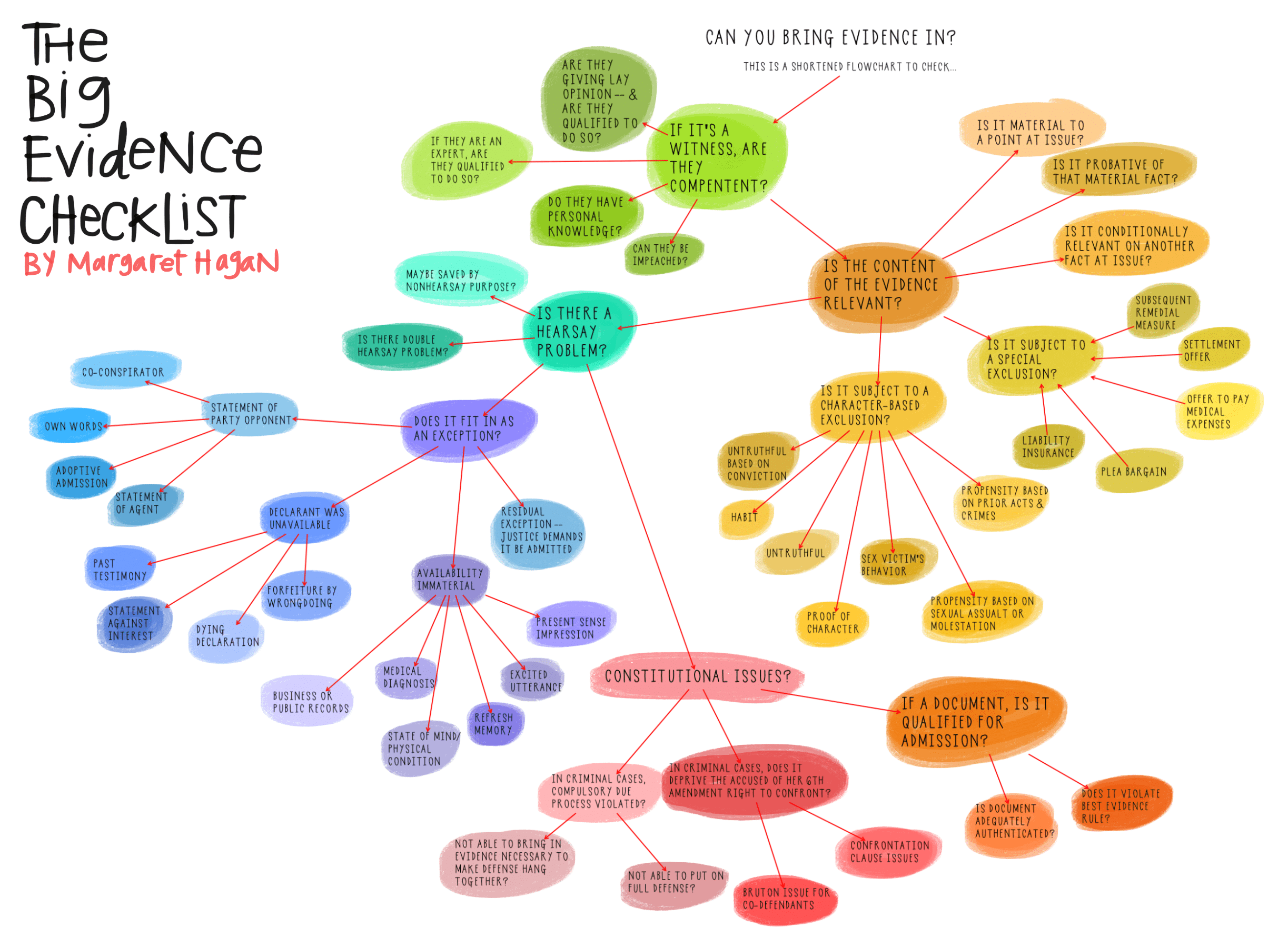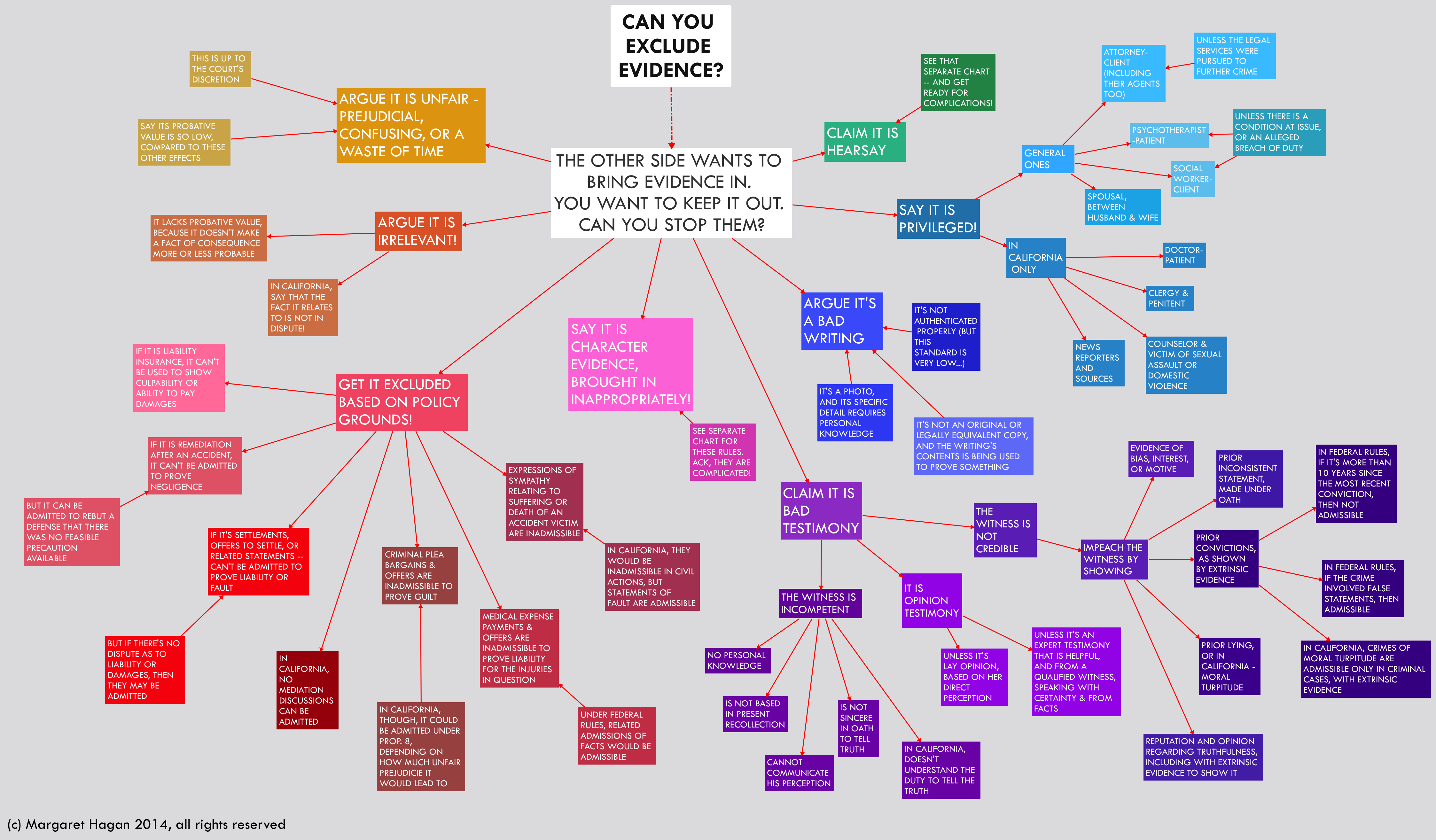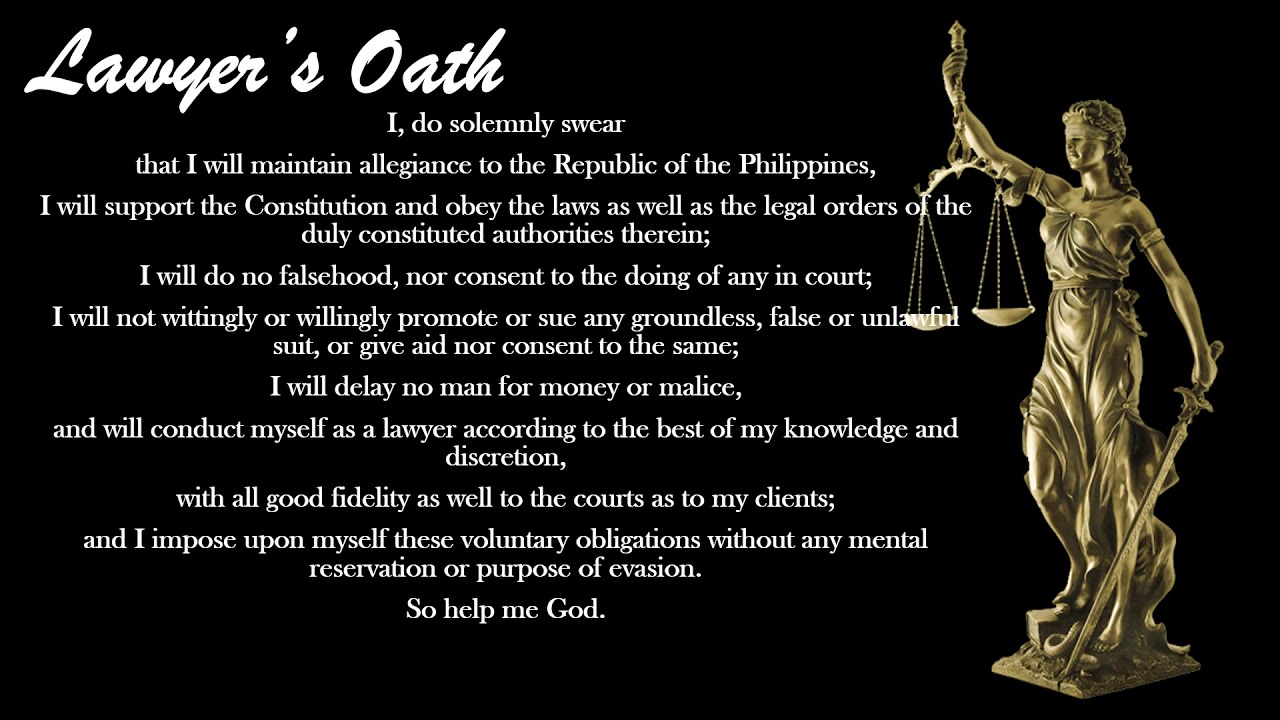The Attorney’s Sworn Oath
Taking the attorney’s oath is not just a ritual. It is required for admission to practice law in California.
You may take the oath at an in-person or virtual group swearing-in ceremony organized by your law school, local bar association, or through another group. The State Bar’s Office of Admissions no longer hosts admission ceremonies.
If you are unable to attend an in-person ceremony, you may need to arrange to take the oath one-on-one with an authorized official (see instructions below).
Please note, you cannot be sworn in before your certification for admission has been accepted by the Supreme Court of California and without having received the required form. Please refer to the instructions and FAQs on the Virtual Oath Packet webpage.
California authorized officials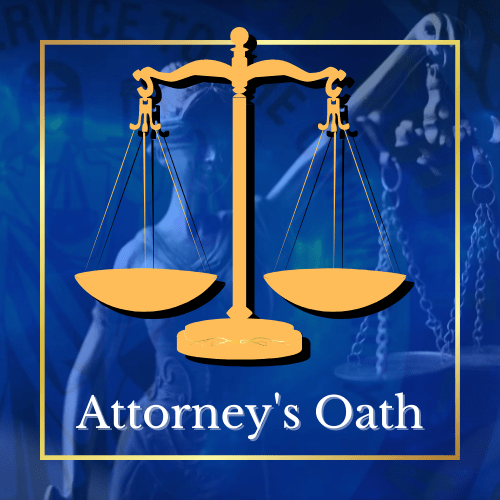
If you are unable to attend a group swearing-in ceremony, you may request an authorized official to swear you in. Below are the officials in California authorized to administer the oath. During the COVID-19 pandemic, if you are requesting that an official administer the oath virtually, you must confirm with the officials that they are authorized to do so.
Important note: California notaries public cannot administer the attorney’s oath virtually, they can only administer the oath in person.
- A judge of any court of record. CCP § 2093 (a); Gov. Code § 1225
- A justice of any court of record. CCP § 2093(a); Gov. Code § 1225
- A former judge or justice of a court of record who is certified by the Commission on Judicial Performance to administer oaths (as long as the judge or justice was not facing charges at the time of resignation or retirement). CCP § 2093(c); Gov. Code § 1225
- The clerk of any court of record. CCP § 2093(a)
- A court commissioner of any court of record. CCP § 259; CCP § 2093(a)
- A notary public. CCP § 2093(a)
- A shorthand court reporter. CCP § 2093(b)
- An officer of the executive branch of government (i.e., Governor, Lieutenant Governor)
- Any member of the Legislature. Gov. Code § 1225
- The Secretary of the Senate. Gov. Code § 9191.5
- The Chief Clerk of the Assembly. Gov. Code § 9191.5
- Any county officer (i.e. district attorney, registrar of voters, assessor, member of the Board of Supervisors) and the officer’s deputy. Gov. Code § 24057
- Judges of the State Bar Court. Bus. Prof. Code § 6086.5; CCP § 2093(a)
- The State Bar’s Chief Trial Counsel. Bus. Prof. Code § 6052; CCP § 2093(a)
- Administrative Law Judges. Gov. Code § 11528; CCP § 2093(a)
- Mayor. Gov. Code § 40603
- Jury Commissioner. CCP § 196(a)
Outside California
If you currently live outside of California, it is not necessary for you to return to take the attorney’s oath. An affidavit taken in a foreign country to be used in California may be taken before an ambassador, minister, consul, vice-consul, or consular agent of the United States or before any judge of a court of record having a seal in such foreign country. (Code Civ. Proc. § 2014.)
When an affidavit is taken before a judge or a court in another state or in a foreign country, the genuineness of the signature of the judge, the existence of the court, and the fact that such judge is a member thereof must be certified by the clerk of the court, under the seal thereof. (Code Civ. Proc. § 2015.) Affidavits and oaths made by military personnel are governed by California Civ. Code section 1183.5.
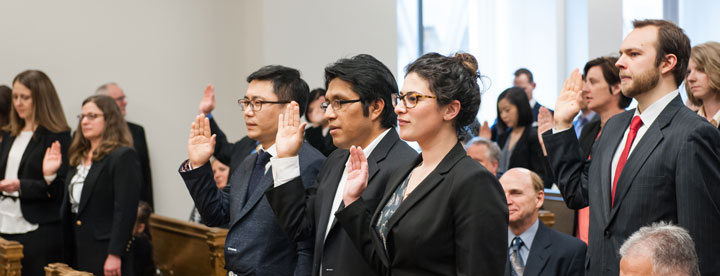
Oath text
Text of the attorney’s oath is available below for the convenience of any person authorized to administer the oath. This is for reference purposes only. Successful applicants who have satisfied all admissions requirements are required to follow the procedures outlined in the Virtual Oath Packet to be officially sworn in and then subsequently enrolled by the State Bar.
OATH (to be taken before a Notary or other authorized administering officer): I, (licensee name) solemnly swear (or affirm) that I will support the Constitution of the United States and the Constitution of the State of California, and that I will faithfully discharge the duties of an attorney and counselor at law to the best of my knowledge and ability. As an officer of the court, I will strive to conduct myself at all times with dignity, courtesy and integrity.
Questions? Submit an inquiry in your Applicant Portal.
Mandating Civility: Beyond the Oath
There has been a noted decline in civility in our profession and society. Citizens struggle to have healthy discussions with those who do not agree with them. Civility is not about agreement, but how we conduct ourselves when we disagree.
To serve as an example for society, the legal profession must model that ‘best’ behavior if discourse is to improve. To that end, in 2014 the California Supreme Court at the recommendation of the State Bar of California Board of Trustees, took a step towards improving civility among California attorneys. It adopted Rule 9.7 of the California Rules of Court adding new language to the attorney oath of admission. The new rule required anyone admitted after 2014 to swear or affirm:
“As an Officer of the Court, I will strive to conduct myself at all times with dignity, courtesy and integrity.”
Did the enactment of this new rule and oath effectuate real change in how attorneys interacted with each other and the courts? In 2021, the California Lawyers Association (CLA) and the California Judges Association (CJA) believed incivility had actually increased in the ensuing years. They formed a joint taskforce to address the issue. In September 2021 they issued their initial report appropriately named “Beyond the Oath”: Recommendations for Improving Civility” and suggested the time had come for “remedial action.”
The Report outlined four key proposals:
1. MCLE Training on Civility – This proposal would require one hour of MCLE training devoted to civility focusing on the link between incivility and bias. The taskforce noted their goal was to educate attorneys about the “economic and human costs of incivility,” to provide them with “reasons and tools” to change their own behavior and to deal with the “stress and dissatisfaction” which uncivil behavior causes. The new one-hour requirement would not add to the number of MCLE hours under the current rules.
2. Judge’s Training – This proposal would require new training programs for judges designed to equip them with tools to have a greater impact on promoting civility among attorneys and to teach them to model the same behavior when interacting with attorneys and litigants. The report attached a sample training program for judges and listed the various rules at their disposal to deal with attorneys (e.g. state bar rules, local county rules and guidelines, guidelines from professional associations, federal court rules and guidelines, and referrals of attorneys to the state bar discipline system).
3. Amend the California Rules of Professional Conduct – The proposed new rule or comment to existing rules would state that repeated incivility would constitute professional misconduct and subject the attorney to state bar discipline. Rule 8.4 which deals with misconduct contains paragraph (d) which states that it is professional misconduct for a lawyer to “engage in conduct that is prejudicial to the administration of justice.” It is contemplated that the rule will be changed to reflect “repeated incivility.”
4. Require all attorneys to take a civility oath annually – Since a large number of California attorneys were admitted to practice before 2014, before the Rule 9.7 oath change, this proposal would require all attorneys who renew and pay annual bar dues to swear or affirm they will conduct themselves civilly.
Finally the Task force commented that incivility disproportionately impacts “young lawyers, women lawyers, lawyers of color and lawyers from other marginalized groups and threatens the profession as a whole and the justice system itself.”
On March 24, 2022, at the State Bar of California Board of Trustees meeting, it considered these four proposals and voted to implement an “action plan” which included 1) directing state bar staff to review the one-hour MCLE training requirement including recommending changes to state bar rules which govern MCLE compliance; 2) referring the amendment of the Rules of Professional Conduct to the Committee on Professional Responsibility and Conduct (COPRAC) to draft a new rule or comment to existing Rule 8.4; and 3) directing state bar staff to prepare a public comment solicitation on requiring all attorneys to take the oath annually.
Although these proposals, if implemented will benefit both attorneys and judges, the ultimate beneficiary of acting civil is our fellow citizens who will see that they can place their trust in the legal profession. The joint taskforce report described the severity of the civility issue noting that “bullying, intimidation and nastiness has too often replaced discussion, negotiation and skillful, hard-fought advocacy which interferes with the justice system’s ability to function fairly and reliably.” They also commented that even the perception of incivility is dangerous to democracy and the rule of law because the public will not trust the legal system if it does not believe its gatekeepers, attorneys and judges are “honest and ethical.”
As former United States Supreme Court Chief Justice Warren Burger noted, “the necessity for civility is relevant to lawyers because you are the living exemplars—and thus teachers every day, in every case, and in every court and your worst conduct will be emulated perhaps more readily than your best.”
Going beyond the oath and implementing these proposals will show the public that civility is the hallmark and foundation of our learned profession. source
read more:
The Attorney’s Sworn Oath
“Civility” Oath Rule Adopted by Supreme Court
Lawyers’ Obligation of Candor to Opposing Parties and Third Parties
Code of Conduct for United States Judges
Suing for Misconduct – Know More of Your Rights
Other Topics
California Supreme Court Rules: Text Messages Sent on Private Government Employees Lines Subject to Open Records Requests
City of San Jose v. Superior Court – Releasing Private Text/Phone Records of Government Employees
Employer$ Beware: La $upreme Court Open$ Line for Direct Negligence Claim$ from Employee Action$
Malicious Prosecution / Prosecutorial Misconduct – Know What it is!
New Supreme Court Ruling Makes it easier to Sue PROSECUTORS & POLICE
ABA – Functions and Duties of the Prosecutor – Prosecution Conduct
Rule 1.1 – Competence (DA REPRESENTS THE STATE)
Rule 1.2 – Assisting in a Crime
Rule 3.1 – Meritorious Claims & Contentions
Rule 3.4 – Fairness to Opposing Party and Council
Model Rule 3.8 pt.2 – Special Duties of Prosecutors
Learn More: ABA – Functions and Duties of the Prosecutor – Prosecution Conduct
Model Rule 4.1 – Truthfulness in Statements to Others
Model Rule 4.4 – Respect for the Rights of Others
Model Rule 5.2 Responsibilities of a Subordinate Lawyer
Model Rule 8.1 Bar Admission & Disciplinary Matters
Model Rule 8.2 – Judicial & Legal Officials
Model Rule 8.3 – Reporting Professional Misconduct
Model Rule 8.4 pt.1 – Lawyer Misconduct
ABA Formal Op. 493 pt.1 – Rule 8.4(g): Purpose, Scope & Application
Model Rule 8.4 pt.2 – Discrimination & Harassment
Attorney Ethics Rules – FOX 17 Know the Law
CALIFORNIA BUSINESS AND PROFESSIONS CODE 6067 Oath
CALIFORNIA BUSINESS AND PROFESSIONS CODE 6067. Oath. Every person on his admission shall take an oath to support the Constitution of the United States and the Constitution of the State of California, and faithfully to discharge the duties of any attorney at law to the best of his knowledge and ability. A certificate of the oath shall be indorsed upon his license. (Added by Stats. 1939, c 34. p. 354, Sec. 1.) NOTE: There are no attorneys licensed in California. When asked, none can produce a certificate. At best, an attorney can only produce his Bar membership card (privately issued by the Bar Association) and a letter of acknowledgement from the state supreme court. The California Bar Association was incorporated in 1903. According to the incorporation papers, the corporation would exist for 50 years. In 1953 the corporation ceased to exist. The Bar Association now does not officially exist in California. It operates as a chapter of the national organization, probably as a common law association. The California Secretary of State does not have any record of the Association since 1953. Any corporation is required to register with the Secretary of State, even municipal and non-profit corporations. The Association has not done so since 1953. source
Cal. R. 9.7 – Rule 9.7 – Oath required when admitted to practice law
In addition to the language required by Business and Professions Code section 6067, the oath to be taken by every person on admission to practice law is to conclude with the following: “As an officer of the court, I will strive to conduct myself at all times with dignity, courtesy and integrity.”
Cal. R. Ct. 9.7
New California lawyers will have to promise to be courteous
New California lawyers will soon have to swear to be courteous and dignified under a change in the legal oath approved by the California Supreme Court.
As of May 23, the oath required of lawyers admitted to the California bar will include a so-called civility pledge, officials announced Thursday. The court adopted it at the urging of the American Board of Trial Advocates, which has pushed for the change nationwide, and the State Bar of California.
New lawyers previously have been required to say this oath: “I solemnly swear (or affirm) that I will support the Constitution of the United States and the Constitution of the State of California, and that I will faithfully discharge the duties of an attorney and counselor at law to the best of my knowledge and ability.”
In the future, the lawyers will have to make one more promise: “As an officer of the court, I will strive to conduct myself at all times with dignity, courtesy, and integrity.”
The new language was the first major change to the lawyers’ oath since it was codified into law in 1872.
Douglas DeGrave, immediate past president of the California Chapters of the American Board of Trial Advocates, called the revision a “historic moment for the legal community.”
“As professionals, we have an obligation to conduct ourselves with dignity, courtesy, and integrity,” DeGrave said in a statement released by the court. “Many have forgotten these very principles to which we, as professionals, should always adhere.”
Patrick Kelly, past president of the state bar, said the promise to be civil would remind lawyers to adhere to principles of professionalism, particularly in their dealings with clients, other attorneys and judges.
Mark Robinson Jr., president of the American Board of Trial Advocates group and a member of California’s Judicial Council, which sets policy for state courts, said the new language “is a great thing for justice here in California.” source
“Civility” Oath Rule Adopted by Supreme Court
Will apply to new lawyers
San Francisco—The California Supreme Court today announced that it has adopted rule 9.4 of the California Rules of Court to supplement the attorney oath for new lawyers. The oath will include a statement that the attorney will strive to conduct himself or herself with dignity, courtesy, and integrity.
“Rule 9.4 Oath required when admitted to practice law” was adopted by the Supreme Court at its administrative conference on April 23, 2014, and will be added to Title 9. Rules On Law Practice, Attorneys, And Judges of the California Rules of Court effective May 23, 2014. The adoption of the rule was consistent with the nationwide efforts, led in part by the American Board of Trial Advocates (ABOTA), to include a “civility” provision to the oaths taken by lawyers admitted to the bar in jurisdictions nationwide.
Mr. Mark Robinson, Jr., commented “As president of ABOTA and also as a member of California’s Judicial Council, I really praise the Chief Justice and the Supreme Court regarding the passing of the courtesy and integrity oath. We need lawyers who are courteous to other lawyers and to the courts, and we need lawyers with integrity. This is a great thing for justice here in California and it’s great for the Judicial Council, national ABOTA, and the people of California.”
Rule 9.4 states “In addition to the language required by Business and Professions Code section 6067, the oath to be taken by every person on admission to practice law is to conclude with the following: ‘As an officer of the court, I will strive to conduct myself at all times with dignity, courtesy, and integrity.’ ”
“The State Bar was pleased to work with Doug DeGrave and CAL-ABOTA in urging the court to adopt this additional measure, and it is our belief that it will create an added reinforcement for attorneys entering the bar in California to remember the principles of professionalism that brought them to the practice in the first place and in particular in their dealings with clients, other attorneys, and judges” said Mr. Patrick Kelly, immediate past-president of the State Bar of California, “This was the highest priority for Doug and I, so we’re delighted that the court has made this addition to the rules.”
With the adoption of the new rule, the entire oath to be taken upon the admission to practice law will now be as follows: “I solemnly swear (or affirm) that I will support the Constitution of the United States and the Constitution of the State of California, and that I will faithfully discharge the duties of an attorney and counselor at law to the best of my knowledge and ability. As an officer of the court, I will strive to conduct myself at all times with dignity, courtesy, and integrity.”
According to Mr. Douglas DeGrave, immediate past president of the California Chapters of the American Board of Trial Advocates (CAL-ABOTA), “This revision to the oath is an historic moment for the legal community. This change in the oath should remind us of our obligations beyond that of zealous advocacy on behalf of our clients. As professionals, we have an obligation to conduct ourselves with dignity, courtesy, and integrity. Many have forgotten these very principles to which we, as professionals, should always adhere. As an organization, CAL-ABOTA is proud of this accomplishment and our partnership with the State Bar. Needless to say, we are very pleased with the adoption of rule 9.4.” source
the oath in all 50 states here
To Learn More…. Read MORE Below and click the links Below
Abuse & Neglect – The Mandated Reporters (Police, D.A & Medical & the Bad Actors)
Mandated Reporter Laws – Nurses, District Attorney’s, and Police should listen up
If You Would Like to Learn More About: The California Mandated Reporting LawClick Here
To Read the Penal Code § 11164-11166 – Child Abuse or Neglect Reporting Act – California Penal Code 11164-11166Article 2.5. (CANRA) Click Here
Mandated Reporter formMandated ReporterFORM SS 8572.pdf – The Child Abuse
ALL POLICE CHIEFS, SHERIFFS AND COUNTY WELFARE DEPARTMENTS INFO BULLETIN:
Click Here Officers and DA’s for (Procedure to Follow)
It Only Takes a Minute to Make a Difference in the Life of a Child learn more below
You can learn more here California Child Abuse and Neglect Reporting Law its a PDF file
Learn More About True Threats Here below….
We also have the The Brandenburg v. Ohio (1969) – 1st Amendment
CURRENT TEST = We also have the The ‘Brandenburg test’ for incitement to violence – 1st Amendment
We also have the The Incitement to Imminent Lawless Action Test– 1st Amendment
We also have the True Threats – Virginia v. Black is most comprehensive Supreme Court definition – 1st Amendment
We also have the Watts v. United States – True Threat Test – 1st Amendment
We also have the Clear and Present Danger Test – 1st Amendment
We also have the Gravity of the Evil Test – 1st Amendment
We also have the Elonis v. United States (2015) – Threats – 1st Amendment
Learn More About What is Obscene…. be careful about education it may enlighten you
We also have the Miller v. California – 3 Prong Obscenity Test (Miller Test) – 1st Amendment
We also have the Obscenity and Pornography – 1st Amendment
Learn More About Police, The Government Officials and You….
$$ Retaliatory Arrests and Prosecution $$
Anti-SLAPP Law in California
Freedom of Assembly – Peaceful Assembly – 1st Amendment Right
We also have the Brayshaw v. City of Tallahassee – 1st Amendment – Posting Police Address
We also have the Publius v. Boyer-Vine –1st Amendment – Posting Police Address
We also have the Lozman v. City of Riviera Beach, Florida (2018) – 1st Amendment – Retaliatory Police Arrests
We also have the Nieves v. Bartlett (2019) – 1st Amendment – Retaliatory Police Arrests
We also have the Hartman v. Moore (2006) – 1st Amendment – Retaliatory Police Arrests
Retaliatory Prosecution Claims Against Government Officials – 1st Amendment
We also have the Reichle v. Howards (2012) – 1st Amendment – Retaliatory Police Arrests
Retaliatory Prosecution Claims Against Government Officials – 1st Amendment
Freedom of the Press – Flyers, Newspaper, Leaflets, Peaceful Assembly – 1$t Amendment – Learn More Here
Vermont’s Top Court Weighs: Are KKK Fliers – 1st Amendment Protected Speech
We also have the Insulting letters to politician’s home are constitutionally protected, unless they are ‘true threats’ – Letters to Politicians Homes – 1st Amendment
We also have the First Amendment Encyclopedia very comprehensive – 1st Amendment
Dwayne Furlow v. Jon Belmar – Police Warrant – Immunity Fail – 4th, 5th, & 14th Amendment
ARE PEOPLE LYING ON YOU? CAN YOU PROVE IT? IF YES…. THEN YOU ARE IN LUCK!
Penal Code 118 PC – California Penalty of “Perjury” Law
Federal Perjury – Definition by Law
Penal Code 132 PC – Offering False Evidence
Penal Code 134 PC – Preparing False Evidence
Penal Code 118.1 PC – Police Officer$ Filing False Report$
Spencer v. Peters– Police Fabrication of Evidence – 14th Amendment
Penal Code 148.5 PC – Making a False Police Report in California
Penal Code 115 PC – Filing a False Document in California
Sanctions and Attorney Fee Recovery for Bad Actors
FAM § 3027.1 – Attorney’s Fees and Sanctions For False Child Abuse Allegations – Family Code 3027.1 – Click Here
FAM § 271 – Awarding Attorney Fees– Family Code 271 Family Court Sanction Click Here
Awarding Discovery Based Sanctions in Family Law Cases – Click Here
FAM § 2030 – Bringing Fairness & Fee Recovery – Click Here
Zamos v. Stroud – District Attorney Liable for Bad Faith Action – Click Here
Mi$Conduct – Pro$ecutorial Mi$Conduct
Prosecutor$
Attorney Rule$ of Engagement – Government (A.K.A. THE PRO$UCTOR) and Public/Private Attorney
What is a Fiduciary Duty; Breach of Fiduciary Duty
The Attorney’s Sworn Oath
Malicious Prosecution / Prosecutorial Misconduct – Know What it is!
New Supreme Court Ruling – makes it easier to sue police
Possible courses of action Prosecutorial Misconduct
Misconduct by Judges & Prosecutor – Rules of Professional Conduct
Functions and Duties of the Prosecutor – Prosecution Conduct
Criminal Motions § 1:9 – Motion for Recusal of Prosecutor
Pen. Code, § 1424 – Recusal of Prosecutor
Removing Corrupt Judges, Prosecutors, Jurors and other Individuals & Fake Evidence from Your Case
Mi$Conduct – Judicial Mi$Conduct
Judge$
Prosecution Of Judges For Corrupt Practice$
Code of Conduct for United States Judge$
Disqualification of a Judge for Prejudice
Judicial Immunity from Civil and Criminal Liability
Recusal of Judge – CCP § 170.1 – Removal a Judge – How to Remove a Judge
l292 Disqualification of Judicial Officer – C.C.P. 170.6 Form
How to File a Complaint Against a Judge in California?
Commission on Judicial Performance – Judge Complaint Online Form
Why Judges, District Attorneys or Attorneys Must Sometimes Recuse Themselves
Removing Corrupt Judges, Prosecutors, Jurors and other Individuals & Fake Evidence from Your Case
Misconduct by Government Know Your Rights Click Here (must read!)
Under 42 U.S.C. $ection 1983 – Recoverable Damage$
42 U.S. Code § 1983 – Civil Action for Deprivation of Right$
18 U.S. Code § 242 – Deprivation of Right$ Under Color of Law
18 U.S. Code § 241 – Conspiracy against Right$
Section 1983 Lawsuit – How to Bring a Civil Rights Claim
Suing for Misconduct – Know More of Your Right$
Police Misconduct in California – How to Bring a Lawsuit
How to File a complaint of Police Misconduct? (Tort Claim Forms here as well)
Deprivation of Rights – Under Color of the Law
What is Sua Sponte and How is it Used in a California Court?
Removing Corrupt Judges, Prosecutors, Jurors
and other Individuals & Fake Evidence from Your Case
Anti-SLAPP Law in California
Freedom of Assembly – Peaceful Assembly – 1st Amendment Right
How to Recover “Punitive Damages” in a California Personal Injury Case
Pro Se Forms and Forms Information(Tort Claim Forms here as well)
What is Tort?
PARENT CASE LAW
RELATIONSHIP WITH YOUR CHILDREN &
YOUR CONSTITUIONAL RIGHT$ + RULING$
YOU CANNOT GET BACK TIME BUT YOU CAN HIT THOSE IMMORAL NON CIVIC MINDED PUNKS WHERE THEY WILL FEEL YOU = THEIR BANK
Family Law Appeal – Learn about appealing a Family Court Decision Here
9.3 Section 1983 Claim Against Defendant as (Individuals) —
14th Amendment this CODE PROTECT$ all US CITIZEN$
Amdt5.4.5.6.2 – Parental and Children’s Rights –
5th Amendment this CODE PROTECT$ all US CITIZEN$
9.32 – Interference with Parent / Child Relationship –
14th Amendment this CODE PROTECT$ all US CITIZEN$
California Civil Code Section 52.1
Interference with exercise or enjoyment of individual rights
Parent’s Rights & Children’s Bill of Rights
SCOTUS RULINGS FOR YOUR PARENT RIGHTS
SEARCH of our site for all articles relating for PARENTS RIGHTS Help!
Child’s Best Interest in Custody Cases
Are You From Out of State (California)? FL-105 GC-120(A)
Declaration Under Uniform Child Custody Jurisdiction and Enforcement Act (UCCJEA)
Learn More:Family Law Appeal
Necessity Defense in Criminal Cases
GRANDPARENT CASE LAW
Do Grandparents Have Visitation Rights? If there is an Established Relationship then Yes
Third “PRESUMED PARENT” Family Code 7612(C) – Requires Established Relationship Required
Cal State Bar PDF to read about Three Parent Law –
The State Bar of California family law news issue4 2017 vol. 39, no. 4.pdf
Distinguishing Request for Custody from Request for Visitation
Troxel v. Granville, 530 U.S. 57 (2000) – Grandparents – 14th Amendment
S.F. Human Servs. Agency v. Christine C. (In re Caden C.)
9.32 Particular Rights – Fourteenth Amendment – Interference with Parent / Child Relationship
Child’s Best Interest in Custody Cases
When is a Joinder in a Family Law Case Appropriate? – Reason for Joinder
Joinder In Family Law Cases – CRC Rule 5.24
GrandParents Rights To Visit
Family Law Packet OC Resource Center
Family Law Packet SB Resource Center
Motion to vacate an adverse judgment
Mandatory Joinder vs Permissive Joinder – Compulsory vs Dismissive Joinder
When is a Joinder in a Family Law Case Appropriate?
Kyle O. v. Donald R. (2000) 85 Cal.App.4th 848
Punsly v. Ho (2001) 87 Cal.App.4th 1099
Zauseta v. Zauseta (2002) 102 Cal.App.4th 1242
S.F. Human Servs. Agency v. Christine C. (In re Caden C.)
DUE PROCESS READS>>>>>>
Due Process vs Substantive Due Process learn more HERE
Understanding Due Process – This clause caused over 200 overturns in just DNA alone Click Here
Mathews v. Eldridge – Due Process – 5th & 14th Amendment Mathews Test – 3 Part Test– Amdt5.4.5.4.2 Mathews Test
“Unfriending” Evidence – 5th Amendment
At the Intersection of Technology and Law
We also have the Introducing TEXT & EMAIL Digital Evidence in California Courts – 1st Amendment
so if you are interested in learning about Introducing Digital Evidence in California State Courts
click here for SCOTUS rulings
Retrieving Evidence / Internal Investigation Case
Conviction Integrity Unit (“CIU”) of the Orange County District Attorney OCDA – Click Here
Fighting Discovery Abuse in Litigation – Forensic & Investigative Accounting – Click Here
Orange County Data, BodyCam, Police Report, Incident Reports,
and all other available known requests for data below:
APPLICATION TO EXAMINE LOCAL ARREST RECORD UNDER CPC 13321 Click Here
Learn About Policy 814: Discovery Requests OCDA Office – Click Here
Request for Proof In-Custody Form Click Here
Request for Clearance Letter Form Click Here
Application to Obtain Copy of State Summary of Criminal HistoryForm Click Here
Request Authorization Form Release of Case Information – Click Here
Texts / Emails AS EVIDENCE: Authenticating Texts for California Courts
Can I Use Text Messages in My California Divorce?
Two-Steps And Voila: How To Authenticate Text Messages
How Your Texts Can Be Used As Evidence?
California Supreme Court Rules:
Text Messages Sent on Private Government Employees Lines
Subject to Open Records Requests
case law: City of San Jose v. Superior Court – Releasing Private Text/Phone Records of Government Employees
Public Records Practices After the San Jose Decision
The Decision Briefing Merits After the San Jose Decision
CPRA Public Records Act Data Request – Click Here
Here is the Public Records Service Act Portal for all of CALIFORNIA Click Here
Rules of Admissibility – Evidence Admissibility
Confrontation Clause – Sixth Amendment
Exceptions To The Hearsay Rule – Confronting Evidence
Prosecutor’s Obligation to Disclose Exculpatory Evidence
Successful Brady/Napue Cases – Suppression of Evidence
Cases Remanded or Hearing Granted Based on Brady/Napue Claims
Unsuccessful But Instructive Brady/Napue Cases
ABA – Functions and Duties of the Prosecutor – Prosecution Conduct
Frivolous, Meritless or Malicious Prosecution – fiduciary duty
Appealing/Contesting Case/Order/Judgment/Charge/ Suppressing Evidence
First Things First: What Can Be Appealed and What it Takes to Get Started – Click Here
Options to Appealing– Fighting A Judgment Without Filing An Appeal Settlement Or Mediation
Cal. Code Civ. Proc. § 1008 Motion to Reconsider
Penal Code 1385 – Dismissal of the Action for Want of Prosecution or Otherwise
Penal Code 1538.5 – Motion To Suppress Evidence in a California Criminal Case
CACI No. 1501 – Wrongful Use of Civil Proceedings
Penal Code “995 Motions” in California – Motion to Dismiss
WIC § 700.1 – If Court Grants Motion to Suppress as Evidence
Suppression Of Exculpatory Evidence / Presentation Of False Or Misleading Evidence – Click Here
Notice of Appeal — Felony (Defendant) (CR-120) 1237, 1237.5, 1538.5(m) – Click Here
California Motions in Limine – What is a Motion in Limine?
Cleaning Up Your Record
Penal Code 851.8 PC – Certificate of Factual Innocence in California
Petition to Seal and Destroy Adult Arrest Records – Download the PC 851.8 BCIA 8270 Form Here
SB 393: The Consumer Arrest Record Equity Act – 851.87 – 851.92 & 1000.4 – 11105 – CARE ACT
Expungement California – How to Clear Criminal Records Under Penal Code 1203.4 PC
How to Vacate a Criminal Conviction in California – Penal Code 1473.7 PC
Seal & Destroy a Criminal Record
Cleaning Up Your Criminal Record in California (focus OC County)
Governor Pardons – What Does A Governor’s Pardon Do
How to Get a Sentence Commuted (Executive Clemency) in California
How to Reduce a Felony to a Misdemeanor – Penal Code 17b PC Motion
 Epic Criminal / Civil Right$ SCOTUS Help – Click Here
Epic Criminal / Civil Right$ SCOTUS Help – Click Here
 Epic Parents SCOTUS Ruling – Parental Right$ Help – Click Here
Epic Parents SCOTUS Ruling – Parental Right$ Help – Click Here
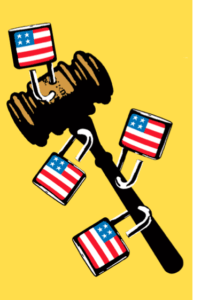 Judge’s & Prosecutor’s Jurisdiction– SCOTUS RULINGS on
Judge’s & Prosecutor’s Jurisdiction– SCOTUS RULINGS on
 Prosecutional Misconduct – SCOTUS Rulings re: Prosecutors
Prosecutional Misconduct – SCOTUS Rulings re: Prosecutors
Family Treatment Court Best Practice Standards
Download Here this Recommended Citation
Please take time to learn new UPCOMING
The PROPOSED Parental Rights Amendment
to the US CONSTITUTION Click Here to visit their site
The proposed Parental Rights Amendment will specifically add parental rights in the text of the U.S. Constitution, protecting these rights for both current and future generations.
The Parental Rights Amendment is currently in the U.S. Senate, and is being introduced in the U.S. House.
